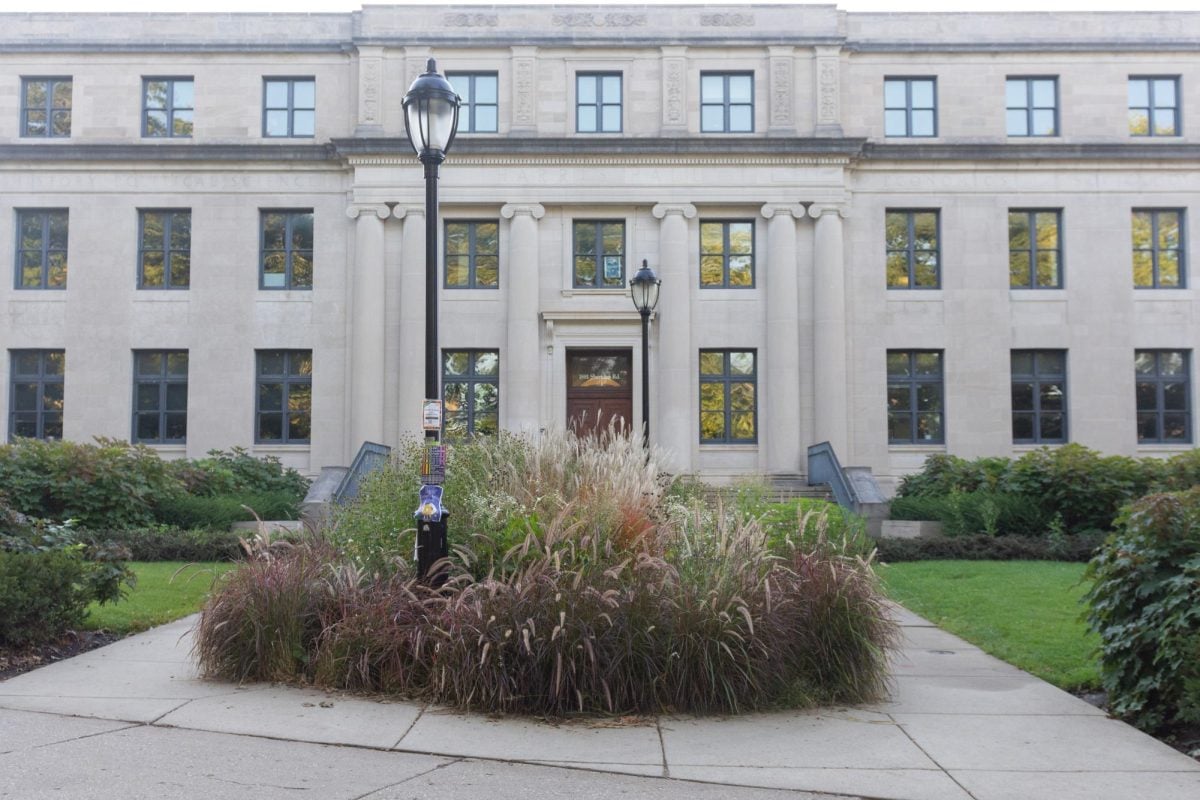University of Texas at Austin Prof. Talitha LeFlouria presented her research about “the South’s most inconspicuous workforce” — incarcerated Black women — Tuesday afternoon in Harris Hall.
The event, which drew over 70 community members, was part of the Chabraja Center for Historical Studies’ annual lunch lecture series inviting faculty and graduate students to engage in ongoing conversations about historical materials.
LeFlouria is a nationally recognized historian and award-winning author. She is best known for her six-time award-winning book “Chained in Silence: Black Women and Convict Labor in the New South,” which highlights the harsh realities Black women faced and the work they contributed to U.S southern industry in the convict lease and chain gang systems of late 19th-century Georgia.
Recent public reckonings with convict leasing have made her reflect on her understanding of the practice’s history, LeFlouria said, and view her own research in a new light.
“Now I see a book that not only highlights the impact of slavery’s legacy on Black women’s lives but also provides insight into the history of mass incarceration through (Black women’s) historical experiences,” LeFlouria said.
Her aim for Tuesday’s presentation was to examine the history of Black women in the epidemic of mass incarceration through the lens of the U.S. convict lease system.
LeFlouria explained that prior to modern initiatives that target Black communities based on their association with drugs and gun violence, there already existed systems in place to criminalize Black people and disproportionately incarcerate them.
“Before there was a war on drugs, there was a war on Black freedom,” LeFlouria said.
She explained that starting in 1865, Black people were mass arrested and imprisoned in the South for committing what were called “Freedom Crimes.”
In 1865 and 1866, former slave states in the South began to adopt the Black Codes — revised versions of the Slave Codes. The Black Codes proclaimed actions like vagrancy, possession of firearms and insulting gestures. These acts were only considered punishable crimes when the person charged was Black.
After the Civil War, incarceration rates among African Americans climbed by over 500%, occupying more than 90% of the total incarcerated population, according to LeFlouria. By 1970, Georgia held 90% of the South’s incarcerated Black women in private contractor jails, she said.
LeFlouria explained that the bulk of the South’s workforce became Black women who were transferred from one labor site to another, building structures like railroads, or who were stationed at plantations where they performed labor including making brick or mining coal.
She said the legacy of the convict lease system still lives on today, where Black people are criminalized and disproportionately incarcerated.
“Forced prison labor is alive and legal,” LeFlouria said.
She drew parallels between women from the convict leasing system at forced labor plantations, and modern-day instances of forced prison labor. For example, incarcerated people manufactured Whole Foods products until 2015 and Victoria’s Secret products in the 1980s.
Now, LeFlouria said she is deeply involved with A New Way of Life Reentry Project, an organization that helps formerly incarcerated women reintegrate into society through work and educational opportunities.
She does historical research for the organization and teaches formerly incarcerated women through a leadership program called Women Organizing for Justice and Opportunity, she said.
“Today, I focus on the experiences of incarcerated Black women to ensure that their stories are included in the history that often overlooks them and also as a way of highlighting the historical injustices that they faced within our criminal legal system for centuries,” LeFlouria said.
She added that her research helps incarcerated women understand the exploitation they face today through historical reference.
Joshua Crutchfield, a postdoctoral fellow in the Black Studies department at Northwestern, does work focused on imprisoned Black women intellectuals. As a former graduate research assistant for LeFlouria, he helped her research convict leasing camps, prisons and the search for the presence of Black women in those institutions.
“The media coverage around (incarceration and crime) is racialized, and so I think you start there,” Crutchfield said.
Crutchfield said because Black women have been criminalized within the media, people cannot understand the context behind why these women are being sent to prison.
People should emphasize people’s experience as someone who has been criminalized rather than someone who is a criminal, he said.
Medill sophomore Maiya Wahl, shared her own thoughts on the criminalization of Black women in the media after the event.
“We seem to be more comfortable criticizing institutions when we’re looking at them in the rearview mirror,” she said. “When it comes to institutions directly in front of us that have eerily similar characteristics to the past, we don’t bring that same moral assurance as we otherwise would.”
Email: [email protected]
Related Stories:
— Evanston Branch NAACP hosts panel discussing mass incarceration






